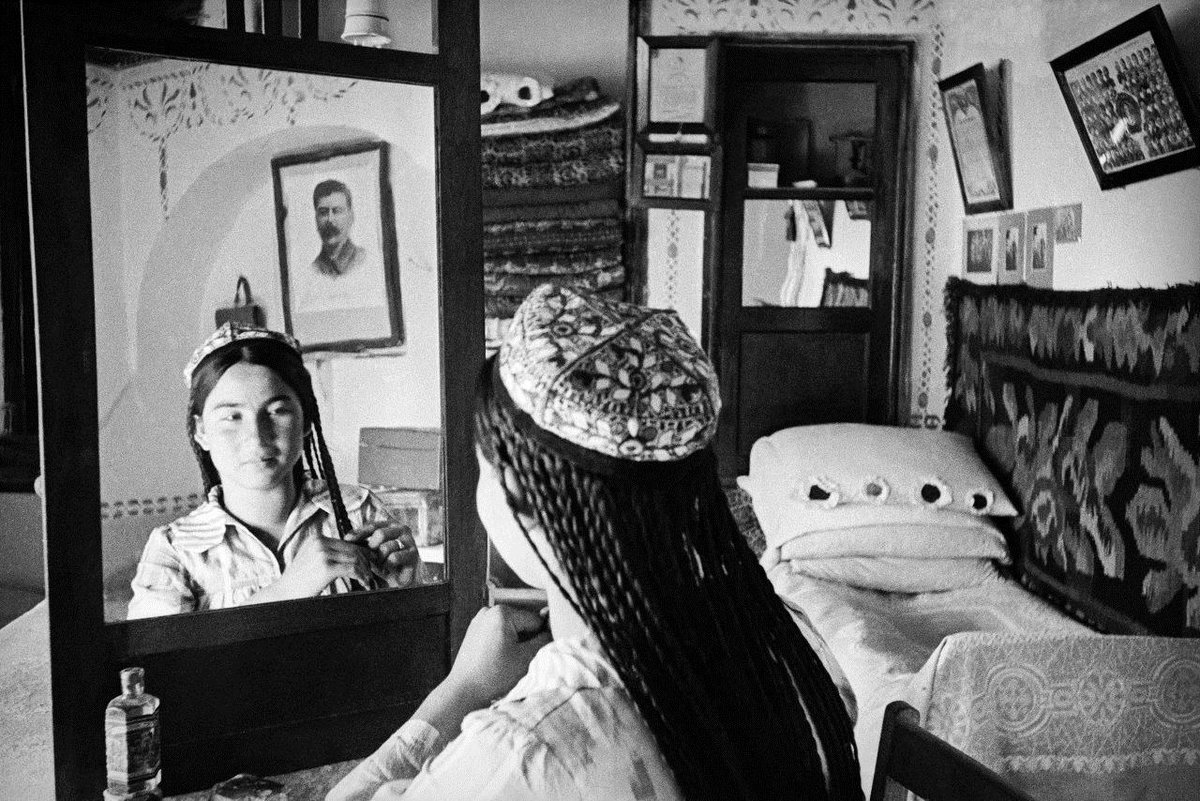#1 CCA Tashkent Newsletter

The newsletter of the Center for Contemporary Arts Tashkent is put together by CCA Lab Tashkent, a cross-disciplinary research group of young talented artists based in Tashkent. CCA Tashkent Newsletter #1 has been released in tandem with an event that was scheduled to be held in early April at the center: the first edition of Tashkent Film Encounters which has now migrated to an online platform. T(F)E will present selections of the contemporary classics of Central Asian cinema, bringing exceptional cinematic voices to light that have been internationally recognized, but not widely screened in their region of origin.
Tashkent Film Encounters opens its cycle with online translation available for the film Voiz (Orator), produced in 1999 by Uzbek filmmaker Yusup Razikov. The film offers a new reading of the history of Uzbekistan between the 1920s–30s, raising questions on the establishment of Soviet power in Uzbekistan, and the resulting reconsiderations of the family institution and education of women.
Music for "Voiz" ("Orator")
DMITRY YANOV–YANOVSKY - the composer of Voiz, he is one of the most prominent Uzbek composers who has produced a distinguished body of work characterized by a merging of musical influences from Central Asia with the postmodernist compositional styles of Russia and Eastern Europe. Yanov-Yanovsky was originally a prolific composer of animation and film music tracks, and he has created numerous outstanding compositions for Uzbekfilm studio.
Here is an example of the Uzbek animation “Thread” directed by Sergy Alibekov.
Some additional examples of orchestral music used in cinema can be found on the site of Yanov–Yanovsky.
The new republic in Max Penson`s archive
The photographs of MAX PENSON (1893 – 1959) witness the transformations taking place in Uzbekistan as it progressed from a traditional society to a modern Soviet republic between the 1920s and the 1940s. His works were featured in many international exhibitions worldwide, among them MoMa NY, and were obviously admired and served as inspiration for filmmakers and artists in the region.
A soviet magazine about women`s rights

YANGI YOL (NEW PATH) an Uzbek-language women`s magazine published from 1925 – 1933 in Uzbekistan that was created by the Women`s Division of the Communist Party in the newly formed Uzbekistan. Yangi Yo`l`s core mission was to explain to Uzbek women that their lives could improve if they would take advantage of new opportunities and do the following: gain literacy, send their daughters to school, work for pay outside the home, learn about their rights under Soviet law.
The history of emancipation
MARIANNE KAMP is a professor at Indiana University, Central Eurasian Studies Department. Her research on women in Uzbekistan is widely acclaimed among international scholars and offers a unique reading of the experiences of women in contemporary Uzbekistan. Through one-to-one interviews with women who witnessed and lived through certain events, Prof. Kamp’s archival research on female figures who were actively engaged in bringing about historical changes has resulted in her publications that analyze the shifting social-political landscape of Uzbekistan in the 20th century. Book Pilgrimage and Performance: Uzbek Women and the Imagining of Uzbekistan in the 1920s is available by this link. Book The New Woman in Uzbekistan: Islam, Modernity, and Unveiling under Communism is available by this link
The most important orator in the history of India

"Tryst with Destiny" was a speech delivered by Jawaharlal Nehru, the first Prime Minister of Independent India, to the Indian people on the eve of India`s Independence on midnight 14 August 1947. He spoke on aspects that transcended India’s history. It is considered to be one of the greatest speeches of the 20th century and to be a landmark oration that captures the essence of the triumphant culmination of Indian Independence.
